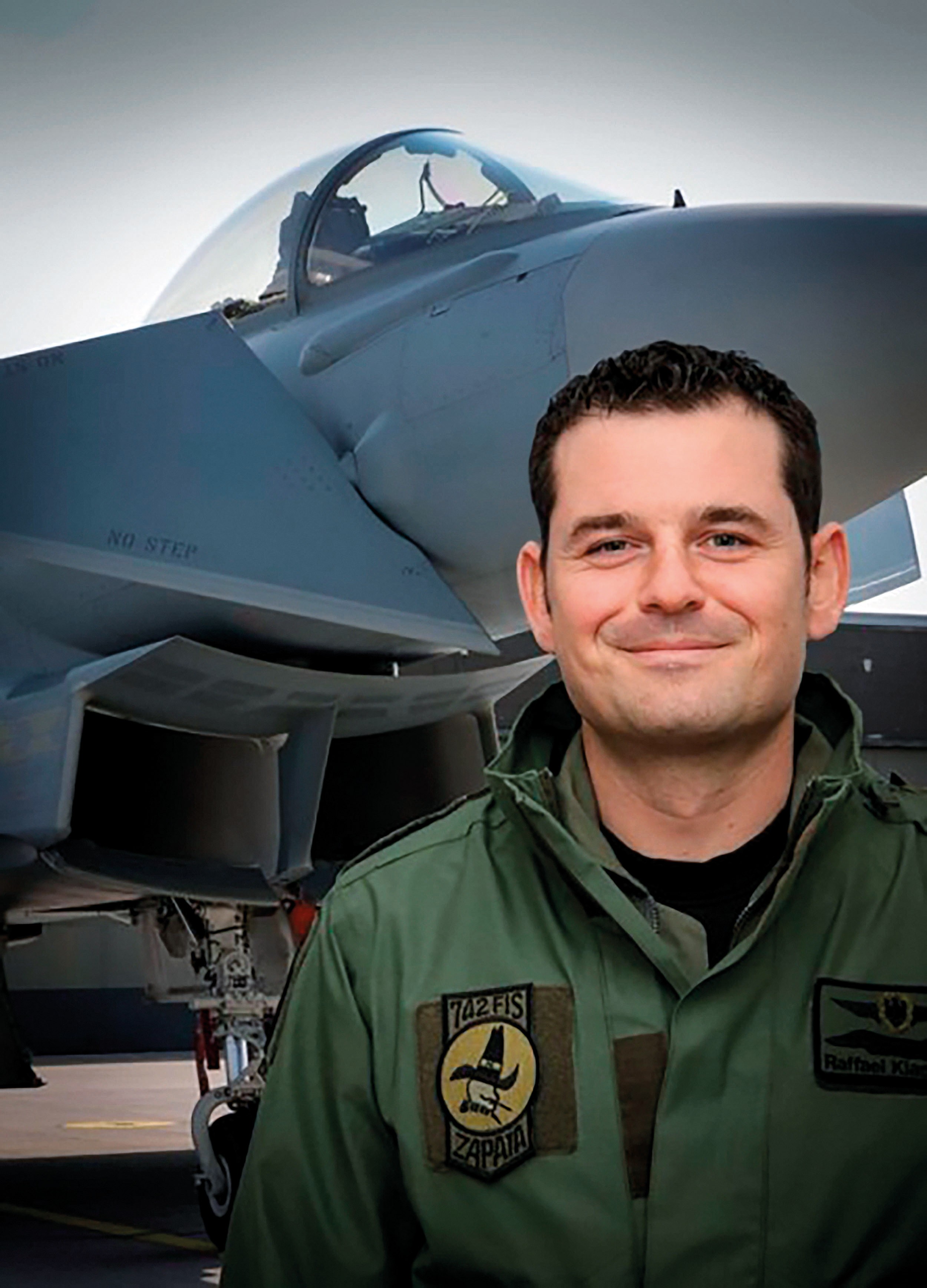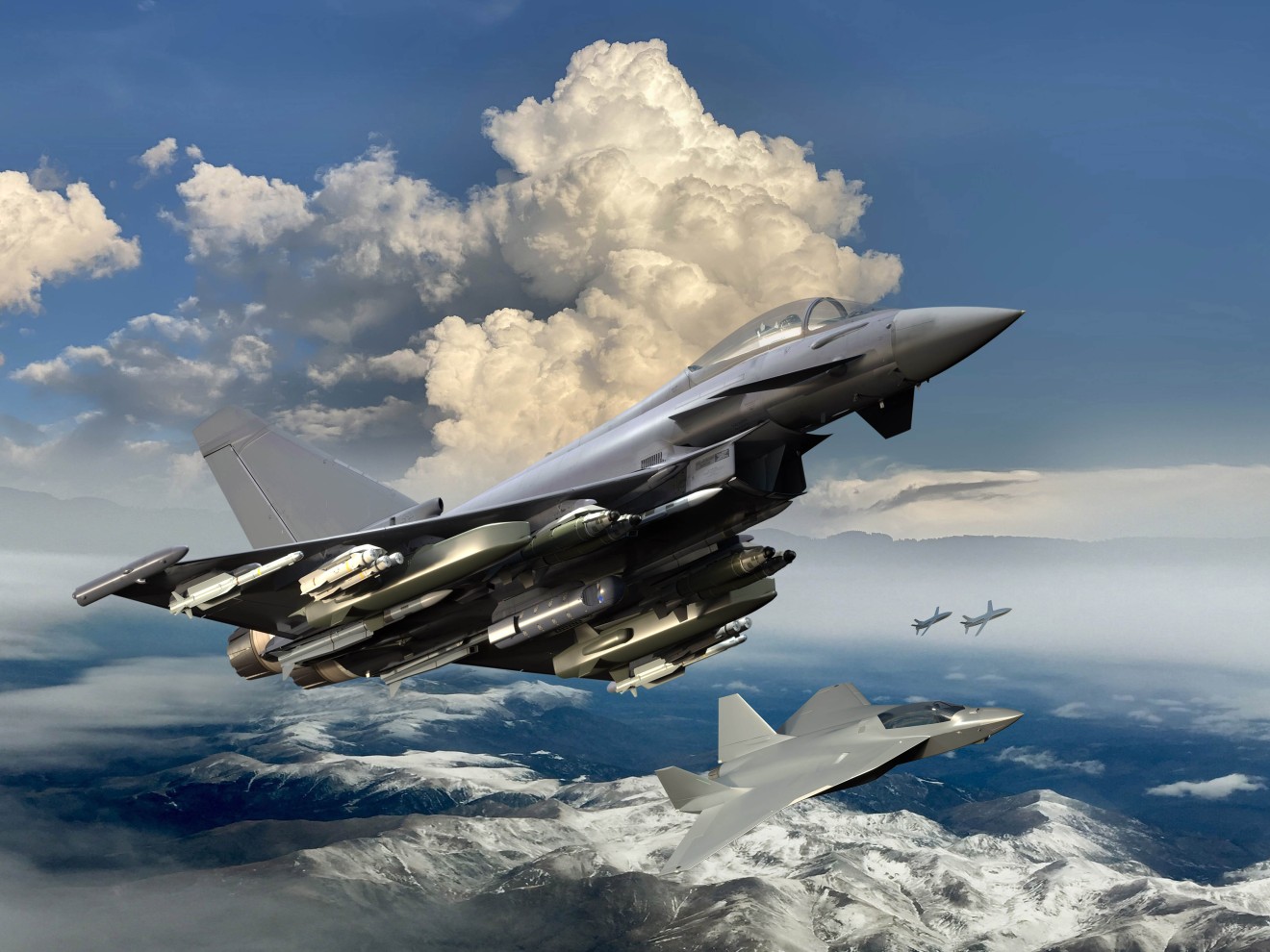“Eurofighter Typhoon will play an important and operationally relevant role in the future operating environment – I have absolutely no doubt about that,” says Raffael Klaschka.
“I’m not saying this simply because of my role at Eurofighter GmbH or indeed my perspective as a former Eurofighter Typhoon pilot— I’m convinced of Eurofighter’s central role for a number of reasons.
“Let’s be clear. The idea that Eurofighter will be replaced or won’t have a fundamental role to play when an FCAS system arrives doesn’t stand up to scrutiny. I’d go even further – the European nations involved in planning the next FCAS systems won’t be able to get the best out of them, both in terms of development and operational capability, without Eurofighter.
“With its scalable weapon effects, great precision and flexibility, Eurofighter will be an essential part of the FCAS. It will be able to significantly increase the mission effectiveness as a manned platform within the FCAS.”
So how will a combat aircraft like Eurofighter play a part in the future operating environment?
“In the future battlespace a combat aircraft would still have a fundamental role to play besides other manned and unmanned assets,” says Raffael. “And if you take a manned, combat proven fighter aircraft out of the FCAS equation, you would leave a capability gap that is hard or impossible to fill with assets that were designed for very specific niche operations rather than for a variety of roles.
“From stabilisation operations and close air support through to high intensity dynamic warfighting, we see a variety of scenarios that demand a wide bandwidth of capabilities. High payload and electronic combat are often mentioned in this context but even the Typhoon’s gun can be a very effective asset in certain scenarios. It is about adaptability and flexibility in terms of scalable weapon effects and aircraft performance. In short, there will be a need for a number of capabilities that a manned combat aircraft like Eurofighter will be perfectly placed to fill.
“It’s clear that in planning for the future Eurofighter has some capabilities that are very well suited to, and perfectly complement, the bigger picture. Nobody really knows exactly when an FCAS will reach 100% Full Operating Capability. But we do know that Eurofighter will pave the way for it and will continue to make a major contribution to the force mix as and when the FCAS does arrive.”

Raffael Klaschka
But, with nations across Europe facing major funding pressures following the Covid-19 crisis, how will they be able to justify a Eurofighter upgrade as well as an FCAS development?
“It's not a question of either an evolved Eurofighter or an FCAS,” says Raffael. “I’d argue that you can't have a truly effective FCAS without investing in the evolution of Typhoon as well. For one thing, investment in Typhoon technology, will allow it to be a maturation platform for the future combat system. As a technical enabler Eurofighter would help de-risk FCAS development.
And, he says that’s not all. “Continued investment in the further evolution of the Eurofighter delivers a huge benefit as a force multiplier of certain military capabilities. For example, installing a high-speed data network into the Eurofighter fleet can be done relatively easily and with limited cost. That in combination with new communication assets enables connectivity to a variety of assets."
Raffael argues that the price you would pay if we were to stop investing in Typhoon would be far higher than the cost needed to make it a vital asset in the future operating environment. Because then the cost would be measured in lost opportunities, skills, technology maturation and future capability of the whole system.
Eurofighter’s Elementary Role
Eurofighter will have an elementary role to play in the decades to come alongside any new Future Combat Air System in the Future Operating Environment, says Raffael Klaschka. It’s the only logical conclusion you can draw when you consider the picture, for these main reasons:
- Intersection: When you consider the different platforms currently used by nations who are developing European FCAS solutions, Eurofighter Typhoon is a common denominator. This means that, regardless of whether we end up with several or one large European FCAS programme, the Eurofighter will be an elementary and important component.
- Quantity: Eurofighter is the largest fleet on a single platform with almost 500 aircraft across Europe. Of course, while some may be taken out of service over time, replacement orders, like Quadriga, will see this number increase. In short, Eurofighter dominates the European market in terms of numbers and will do for years to come.
- Gradual developments to the FCAS: The development of the FCAS systems will be an incremental process, with some of its new technologies matured on existing platforms, like Eurofighter. We don ́t have the luxury of ignoring existing and proven platforms when it comes to maturing new technologies.
- Operating life: When you look at the current Eurofighter user nations and their plans for the operating life of Typhoon, we can be very confident that we will see Eurofighter flying until at least the 2060s.
